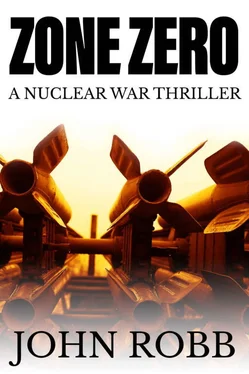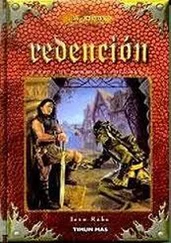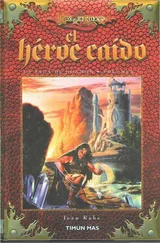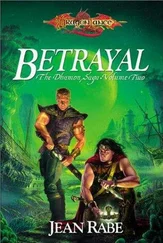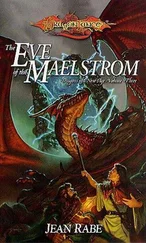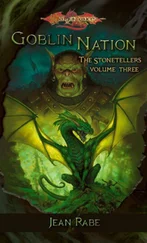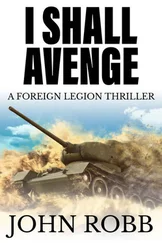D’Aran said in a dangerous, silky way: “Do you realise that the offal, as you describe them, are French subjects?”
There was no pretence about Gallast’s astonishment.
“They are barbarians!”
“They are subjects of the French Empire. As such, they receive the same rights and protection as any person born in metropolitan France. By occupation, they are peaceful traders.”
“Don’t be ridiculous, lieutenant! They were rushing the walls.”
“Fool! They were coming in to find why this post was apparently unoccupied. Look at them, Gallast! Do they seem like warriors? Are they equipped as warriors?”
Gallast licked his lips several times. His eyes narrowed.
“You’re sure they are traders?”
“ Out .”
“Then no great harm has been done. It seems that only one of them has been seriously hurt.”
D’Aran paused before saying with slow precision: “The radio cannot be repaired, Gallast. Not now. A fragment from your grenade has ruined it finally!”
From his superior height, Gallast looked down on D’Aran. The sudden tightening of the skin over his broad cheekbones was the only indication of emotion.
Then he said: “ I shouldn’t worry too much about that , lieutenant ,”
“Shouldn’t worry…”
D’Aran, being French, could not always conceal his feelings. He did not conceal them now. He took an involuntary backward step.
And he had a sudden weird feeling. A feeling of unforeseen insecurity. As if the earth had disintegrated beneath him. And he knew—knew from the essence of his soul—that for the past minute Gallast had been playing with him. Oui , playing! Talking to gain time. But why? Why?
As his confused brain groped for an answer, he realised that Gallast was no longer staring at him, Gallast was looking towards the ramparts.
D’Aran followed his gaze. At first he saw nothing only the huddled Arabs. And he wondered why they had not yet fled over the wall to safety. They ought to have recovered from their paralysing fright by now.
But they were still. There was not a flicker of a limb among them.
Then D’Aran saw the reason.
Four Lebels were being aimed at them. Lebels held by Gallast’s men. Two were on each side of the Arabs, some ten yards distant from them and on the ramparts, too.
The tribesmen, pressed together and armed only with their unwieldy muskets, could make no resistance without immediately being shot down.
D’Aran felt an ache in his heart as he realised what had happened. While he had been talking to Gallast the four men—acting under orders—had moved out of the rear of the building. There they had mounted the ramparts, then converged on the Arabs without being seen until the last moment.
But the original question remained,—why?
Why hold these harmless Bormones in the fort?
Gallast supplied the answer. He did it with smooth satisfaction.
“You constantly underestimate me, lieutenant,” he said. “The moment I first saw the Arabs I appreciated a vital fact. Can you guess what it is? No! Then I’m afraid your conscience is clouding your judgement. I realised that they must have arrived on horseback. And they must have supplies of water…”
He broke off to study D’Aran’s tense face. D’Aran said quietly: “Go on, Gallast.”
“There is not much more to say, is there? I intend to take their horses and water—then move on to the safety of the foothills, as planned. You, of course, will be left here—as corpses. Since we still cannot risk any damage to the instruments.”
A voice spoke to D’Aran. A nebulous, disembodied voice which seemed to come out of infinity. It said: “ Lieutenant D’Aran , perhaps you can be forgiven for being a thief . But not for being a fool . You seized the advantage . Then you threw it away because you let your enemy think faster than you . Do you not remember what you were taught at St . Maixent ? You were taught that tactics are the art of adapting unexpected circumstances to one’s own advantage …”
He shook his head. The voice faded. But he was left with a sense of infantile helplessness. Without realising it, he let his gun fall slightly as he asked: “Why did you shoot at them, Gallast? And why the grenade?”
“The shot was pure excitement on the part of one of my men. But the grenade was a calculated act on my part. Having at once assessed the possibilities, I saw that it might be fatal if I permitted the Arabs to gain entry to the fort. After all, I have only six men. I had to do something which would halt the Arabs and terrify them for a few seconds until we could get them covered. And, of course, I was careful to give you the impression that I was merely acting in ignorance and panic.”
D’Aran was gaining control of himself. He said: “Aren’t you being optimistic? You have four men on the ramparts. That means that besides yourself you have only two others. We number nearly thirty. We can easily deal with you, Gallast.”
He did not answer verbally. Instead he looked inside the building and smiled. It was an insulting, patronising smile.
D’Aran looked, too. And he understood the completeness of the rout.
One of Gallast’s men was standing at the angle of the wall. A grenade was balanced in his hand. It would be simple—too simple—for him to snatch out the pin and lob that grenade into the bunk room where the legionnaires were waiting.
The other man had appeared directly behind Keith. He was gripping a Lebel. It was aimed at the centre of Keith’s back.
Even as D’Aran watched, Keith dropped his Luger and raised his hands. He did so after receiving a snarled order, and after glancing over his shoulder to establish his utter impotence.
Keith met D’Aran’s eye. Each understood the other’s feelings. This was the nadir of misery, of futility, of humiliation. All the careful planning, the patience, the controlling of tortured nerves, was for nothing. Why? Basically, because a party of Arab traders had chanced to arrive with horses and water. Arrived at a time when a shortage of horses and water was the master weapon which the garrison was deploying.
It was when D’Aran’s eyes and mind were thus distracted that Gallast disarmed him. He did so with the confident speed of a man well versed in such matters.
He was still idly tossing a grenade from hand to hand. Suddenly the steel oval was flicked upwards, striking D’Aran on the mouth. For an instant, D’Aran thought that all of them were going to be killed there and then.
Then he realised that the grenade pin was still locked in place. It was safe.
But, as he staggered back, Gallast grabbed the Luger barrel and twisted it inwards.
D’Aran felt an excruciating pain as he tried to hold on. He could not do so. When he released his grip Gallast hit him on the jaw.
As he sprawled on the ground Gallast laughed at him. The Luger was aimed at him.
And Gallast was saying: “I’m going to shoot you, lieutenant. I’m going to shoot you now. And the man with you. Then we are going to throw grenades into the bunk room.”
Keith heard the sentence of death. But he also heard something else.
The sound of heavy breathing. Of uncertain footsteps. Professor Daak was stumbling along the corridor towards them.
Читать дальше
